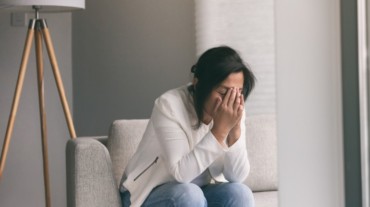
Ag-uh-ruh-FOE-be-uh — this is how you pronounce the term agoraphobia. Look up its dictionary meaning, and you will know it is an anxiety disorder. Simply put, it is the fear of being in a public place swarmed by crowds, and this fear can go to an extent, where the person can even get a panic attack.
According to Dr Santosh Bangar, senior consultant psychiatrist at Global Hospital, Mumbai, agoraphobia is pretty common. He shares, “In agoraphobia, the person fears to even step out of the house. They find excuses to avoid public places, and even situations that they think they can’t deal with.”
The sad part is that even in severe cases, this inability to step out affects their social life, and incapacitates them to go about their daily chores. Such people are mostly dependent on a companion, who can either go out on their behalf or can tag along with them.
“This restrictive behavior of a person pushes him or her into isolation. If not managed at the right time, then this loneliness dwells on them and can be accompanied by other bigger mental health issues like depression, social anxiety, and panic attacks. Unfortunately, this phase makes the case all the more complicated and it becomes even harder to get the patient out of the situation”, he cautions.
That’s why Dr Bangar feels it is important to know the symptoms, so one can help another person, or even themselves. He puts down a few signs and symptoms that confirms if a person has agoraphobia:

1. They resist stepping out of the house.
2. They avoid crowded places or queues.
3. They avoid visiting a small space that might be filled with people.
4 They avoid public transport.
Dr Bangar says, “You will find them getting nervous and distressed, if they come to know that they have to step out. They try to make every possible excuse to escape the situation.”
1. Rapid heart rate, or thumping heart (palpitations)
2. Shaking (tremor) of hands or legs, excessive sweating
3. Dryness of mouth
4. Chest pain, headaches
5. Feeling of a ‘knot in the stomach’ or choking
6. Rapid breathing, feeling of impending doom or passing out
Also, watch:
The causes of agoraphobia are still not as conclusive, as they are usually multifactorial. There is a complex interplay between biological, environmental, and psychological factors, explains Dr Bangar.
Select Topics of your interest and let us customize your feed.
PERSONALISE NOW“Sometimes excessive stress in a predisposed person can trigger the illness. Genetic factors can also cause agoraphobia. People with an anxious or nervous temperament are particularly at risk”, he concludes.
So, if you observe any of the above symptoms that Dr Bangar has just mentioned, then you must seek help, especially if it becomes too difficult to handle.
Get Latest Updates on Mind, Emotional Health, Happiness Hacks, Mental Health